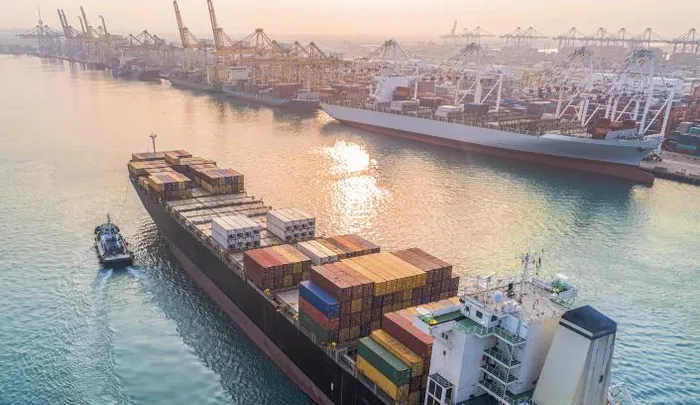Singapore seeks deeper trade ties with South Africa as gateway to Asia
GLOBAL TRADE

According to the United Nations Conference on Trade and Development (UNCTAD), Singapore ranks among the top 10 investors in Africa based on foreign direct investment stock, with Singaporean companies investing over $20 billion in the continent by the end of 2023.
Image: Supplied
Singapore has shown a keen interest in partnering with local businesses and State entities, signalling a strategic move to position the continent as a vibrant alternative for investors looking to extend their reach into Asia.
This interest coincides with South Africa’s government ramping up structural reforms through Phase 2 of Operation Vulindlela, which aims to modernise key sectors, including electricity, water, transport, and digital communications.
The move towards liberalising the economy has opened the door for public-private partnerships (PPPs), allowing State-Owned Enterprises like Eskom and Transnet to explore previously sealed industries for domestic and international collaboration.
Recently, Transnet inked a 10-year contract with United Manganese of Kalahari (UMK) for the rail transportation of manganese from its Northern Cape mine to export ports.
Additionally, the company has engaged Filipino-based International Container Terminal Services (ICTSI) for a 25-year contract to operate and expand the Durban Container Terminal Pier 2, reflecting a newfound openness to international investment.
Speaking with Business Report on Wednesday, Jean Ng, regional director for Southern Africa at Enterprise Singapore, said companies like PSA International were particularly keen on establishing a stronger footprint across the continent, seeing South Africa as a critical transport corridor.
In Singapore, PSA operates the world’s largest transshipment hub and had submitted a bid in the Transnet tender that was won by ICTSI.
“They definitely are interested to land a flag, I would say in terms of South Africa as a key critical transport corridor on that front. So it's just, I guess on that particular project they're just waiting to see what would be the final outcome and if there's a new tender then of course they would proceed to submit their needs accordingly,” Ng said.
“But generally across the continent, even for PSA and some of our other logistics companies, they're also looking at opportunities in which they can do a lot more. When I say do a lot more, traditionally if they're only port operators, they may not look at the logistics end. So now they're also looking into a complete integration to then basically bring more value on the ground when they come in to say I can do end-to-end for the customer. So it's not that different for PSA.”
Singapore's strong bilateral relationship with Africa has evolved over the years, fuelled by shared interests in trade, investment, and technology.
According to the United Nations Conference on Trade and Development (UNCTAD), Singapore ranks among the top 10 investors in Africa based on foreign direct investment stock, with Singaporean companies investing over $20 billion in the continent by the end of 2023.
The he total trade value between Singapore and South Africa reached $1.4bn in 2024, nearly doubling since 2020.
Rahul Ghosh, director for Middle East and Africa at Enterprise Singapore, said they were very bullish on the potential of Africa as a continent and see Africa as an opportunity for diversification for Singaporean companies.
Ghosh said countries were trying to move away from being commodity-centric and were trying to build more industrial bases.
“So I think those are the fundamentals that we believe are going to enable Africa to kind of unlock the potential that Africa has. But also as an opportunity for diversification, there are Singapore companies who are very relevant to Africa because we've got companies who are very good in developing port facilities, logistics infrastructure, building trade corridors, but not just physical trade corridors, but also digital trade corridors,” Ghosh said.
“We think Asia and Singapore are actually also a good diversification opportunity for African companies, especially in today's context. There are trade and tariff wars happening and there's a lot of uncertainty in terms of geopolitics. The global supply chains are all being reordered.
“So all of this also means that Asia and Singapore can be a perfect bridge for South African companies, South Africa as a country, and Africa at large to diversify their own portfolio of trading partners and investment partners as well. So that's the first point on why Africa is important. It's really an opportunity for diversification.”
BUSINESS REPORT